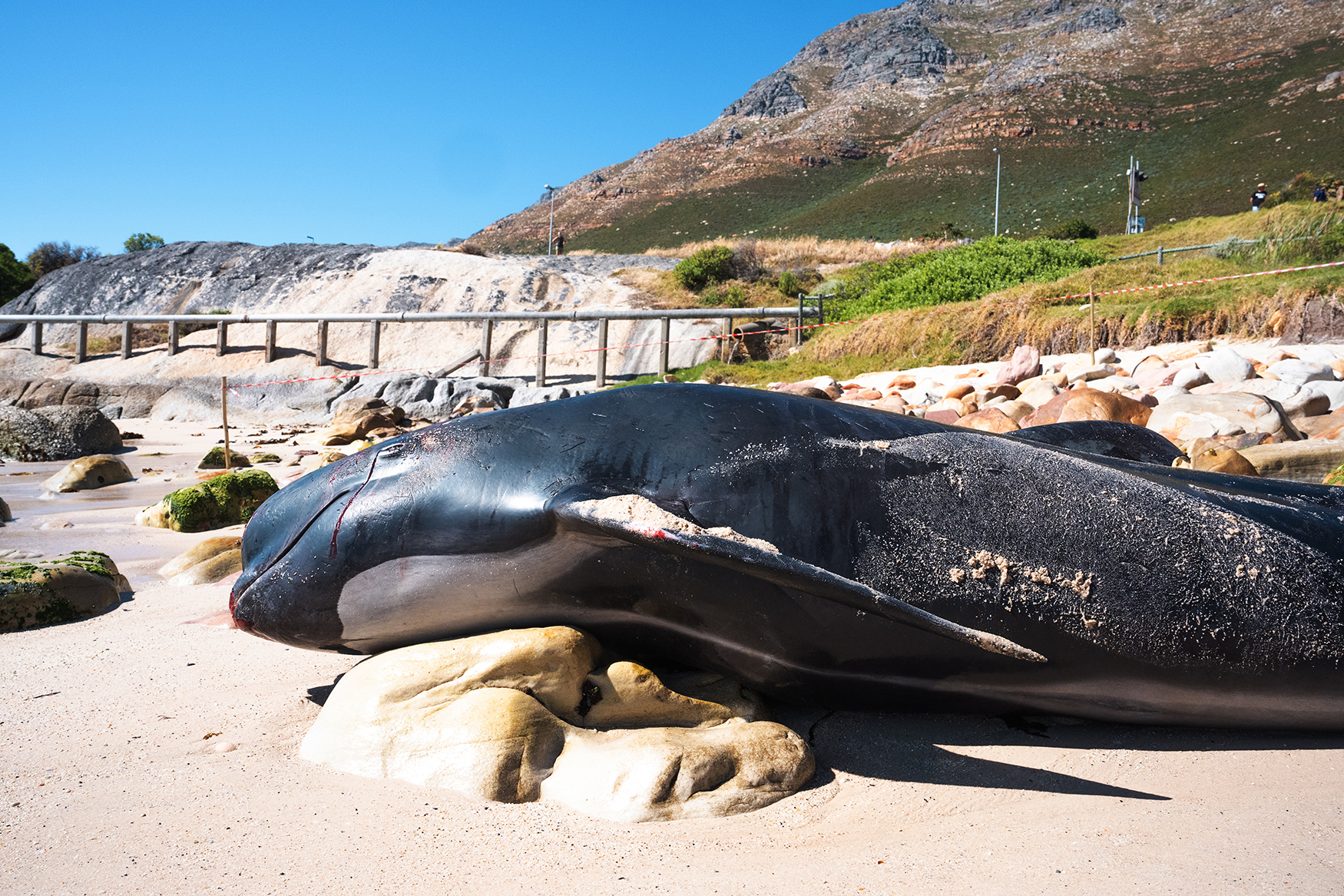The stranding of a single pilot whale is unfortunate. And yet, we can consider ourselves fortunate that it was not a mass stranding, a phenomenon that can occur even along the shore of Cape Town.
Pilot whales are social creatures, and their strong bonds often cause entire groups to strand if one member becomes disoriented (contributing factors to these events include navigation errors, illness, and environmental disturbances).
The last time Cape Town experienced a mass stranding was in 2009, when 55 pilot whales were stranded on Kommetjie Beach, and in 2013, 19 pilot whales beached at Noordhoek Beach, with many dying despite rescue efforts.
Short-finned pilot whales (Globicephala macrorhynchus) are typically found in warmer tropical and subtropical waters, occasionally venturing into deeper offshore areas near South Africa.
In contrast, long-finned pilot whales (Globicephala melas) prefer cooler temperate waters and are more commonly found closer to the southern tip of Africa, particularly in the nutrient-rich Benguela Current region. Both species are well-adapted for deep-sea hunting, relying on their ability to dive to significant depths in search of squid and other prey.
***
/file/dailymaverick/wp-content/uploads/2024/12/DCS05803.jpg)
/file/dailymaverick/wp-content/uploads/2024/12/DCS05778.jpg)
/file/dailymaverick/wp-content/uploads/2024/12/DCS05964.jpg)
/file/dailymaverick/wp-content/uploads/2024/12/DCS05925.jpg)
/file/dailymaverick/wp-content/uploads/2024/12/DCS05843.jpg)





 The whale's face shows streaks of blood, probably caused by being washed over rocks before coming to rest. (Photo: Gunnar Oberhösel)
The whale's face shows streaks of blood, probably caused by being washed over rocks before coming to rest. (Photo: Gunnar Oberhösel)